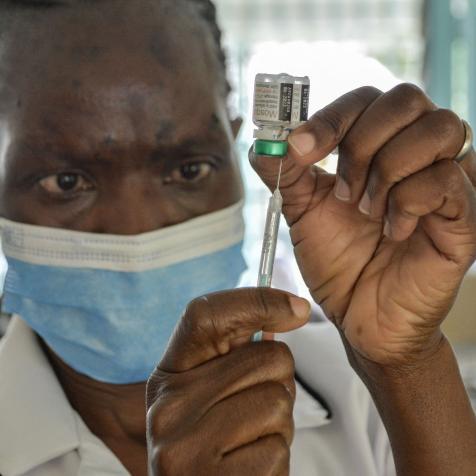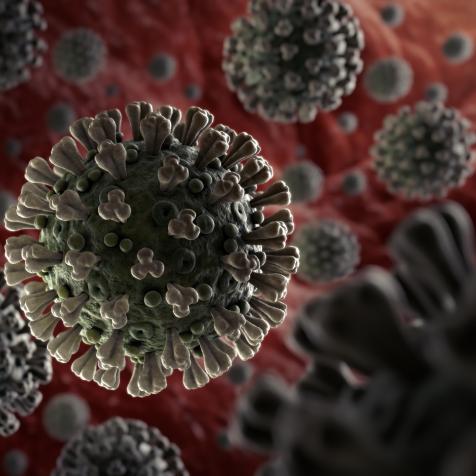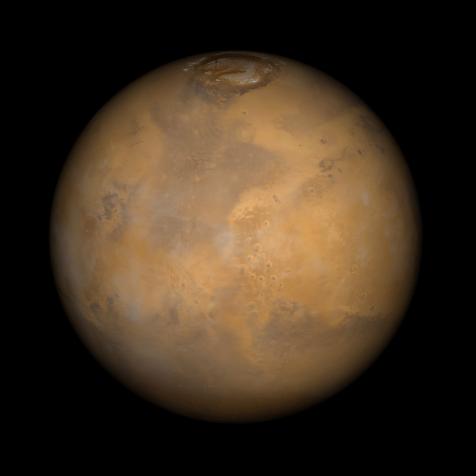
Shutterstock
10 Ways to Hack Your Cooking with Chemistry
Knowing how cooking reactions happen can help you create some truly tasty dishes.
Cooking is chemistry. There's no way around it. Every time you boil water, add salt, or mix salad dressing, you're creating a chemical reaction. Luckily, knowing a bit more about how those reactions happen can help you create some truly tasty dishes. Here are 10 ways to use science to make your food sing.

Shutterstock
1. For the Perfect Saltiness, Know When to Salt
It's tempting to sprinkle in plenty of salt as your food cooks — you want to give the flavors time to mingle, after all — but it's easy to go overboard. That's because temperature affects our perception of flavor, and the hotter your food is, the less salty it tastes. For accurate salting, wait until the dish is done cooking and has cooled to a comfortable tasting temperature, then salt. (Cold temperatures reduce sweet flavors, by the way, which leads some researchers to wonder whether Americans' obsession with ice water is linked to their love of sweets).
2. Baking Soda and Baking Powder, Sans the Baking
While they're usually associated with cookies and muffins, baking soda and baking powder are just as useful in savory dishes. Coating the skin of your chicken or turkey in a mix of baking powder and kosher salt will give you a crisper, more evenly browned bird. That's because the baking powder raises the skin's pH levels to help break down the proteins while also forming bubbles that increase the surface area while it cooks for an extra-crunchy texture. Baking soda also raises the pH of meat to break down proteins and keep it tender, but it has a more metallic taste than baking powder, so it works a bit better if you soak the meat in it beforehand, then rinse before cooking. Baking soda is also a science-backed way to remove pesticides from your fruit!
3. Raw Eggs Without the Risk
We all know you should cook your eggs before eating them — otherwise, there's a risk of contracting foodborne illness from bacteria like salmonella — but that's not always possible. Sometimes recipes call for uncooked eggs (mayonnaise and salad dressing, for instance), sometimes you just want to eat a fistful of raw cookie dough. No judgment. You can reduce your risk of foodborne illness by pasteurizing your eggs at home. If you have a digital thermometer, you can boil your eggs in water heated around 140–142 degrees Fahrenheit (60–61 degrees Celsius) for three to five minutes, depending on their size, then rinse them immediately in cold water. The moderate temperature will be enough to kill any bacteria, but not hot enough to cook the eggs themselves.
4. Unstink Your Fish
Have you ever wondered why fish stinks so much faster than chicken does? It's because while cold temperatures in the fridge slow chemical reactions in the meat of warm-blooded animals like chicken and cows, fish live in those temperatures year-round, so the processes within them aren't fazed by the chilly temps. Fish also contain high levels of a chemical that breaks down into trimethylamine (TMA), which smells like ammonia at high concentrations. But if your fish smells just a little fishy after a couple of days, that's no reason to throw it out. Just soak it in milk for 20 minutes. The casein in the milk will bind with those fishy-smelling compounds and draw them out of the flesh. Lemon juice helps to neutralize the smell, too.
5. Lettuce Leaves With Less Wilting
Salad dressing has an annoying habit of turning lettuce into a big, wilty mess. That's because lettuce leaves have a protective waxy coating that's easily broken down by other oil-based substances like, well, oil. The fix? Beyond waiting until the last minute to add the dressing, which is always a good rule, you can formulate your salad dressing with an emulsifier. That keeps the dressing ingredients from separating, keeping the oil droplets surrounded by the other ingredients so they can do less damage. What counts as an emulsifier? Think mustard, honey, or egg yolk. See tip #3 for that last one.
6. Lemons, Lemons, Lemons
You've probably heard that you can keep fruit from browning by spritzing a little lemon juice on it. Fruit browns when an enzyme within them, called polyphenol oxidase, is exposed to oxygen. The vitamin C and citric acid in lemon juice slows chemical reactions, so the fruit browns more slowly. You can keep that fruit from tasting quite so lemony by diluting the juice in water, then dipping the fruit slices in that. Lemon can also remove stains from cutting boards, shine copper cookware, save your recipe if you're out of buttermilk or soy sauce, and, of course, make a killer cocktail.
7. Cut Your Potatoes for Optimum Crispness
How many of your kitchen techniques are informed by geometry? In January of this year, students in England came up with a mathematical formula for the perfect roasted potato, which they call the "Edge Hotel School Method." The idea is that with the right cuts, you can maximize the potato's surface area to get the greatest ratio of crispy edges to soft innards. You can achieve this mathematical perfection by cutting the potatoes in half lengthwise, then cutting each piece again at an angle of approximately 30 degrees. The students found that this increased the surface area by 65 percent, but you'll notice that it's 100 percent delicious.
8. Cut Your Carb Calories
Rice and pasta are carb bombs, but there's an easy way to reduce the calorie count in these starchy delights. One word: leftovers. In 2014, researchers found that reheated pasta caused a much smaller glucose spike in their volunteers than just-cooked pasta. And in 2015, a Sri Lankan chemistry student realized he could cut the calories in rice by up to 60 percent by cooking it with a little bit of coconut oil, then refrigerating it overnight.
9. Don't Add Oil to Pasta Water
If you're like most people, you make pasta in a pot of boiling water with oil and salt. There are two myths at play here. One, while salt might make the pasta taste saltier (but if you take it from tip #1, you're better off waiting until the end), it won't make the water boil any faster. Myth two: Oil won't keep your pasta from sticking. As we all know, oil and water don't mix, so the oil will just sit on the top of the water until you drain the pasta and it coats all of the noodles, thwarting any sauce's attempt to stick to it. Instead, just use a huge pot of water. If the pasta has room to keep moving, it's less likely to settle for long enough to stick to itself.
10. Chill Beverages in 5 Minutes Flat
If you've got guests on their way and a case of warm beer, here's an easy fix: Stick the bottles in an ice-water bath doused with plenty of salt. Salt lowers the temperature at which water freezes, and since water can surround the bottles better than ice cubes can, liquid water is what you want. The salty ice slurry will be much colder than ice on its own, which means it can give you an ice-cold beverage in as little as five minutes.
This article first appeared on Curiosity.com.


















